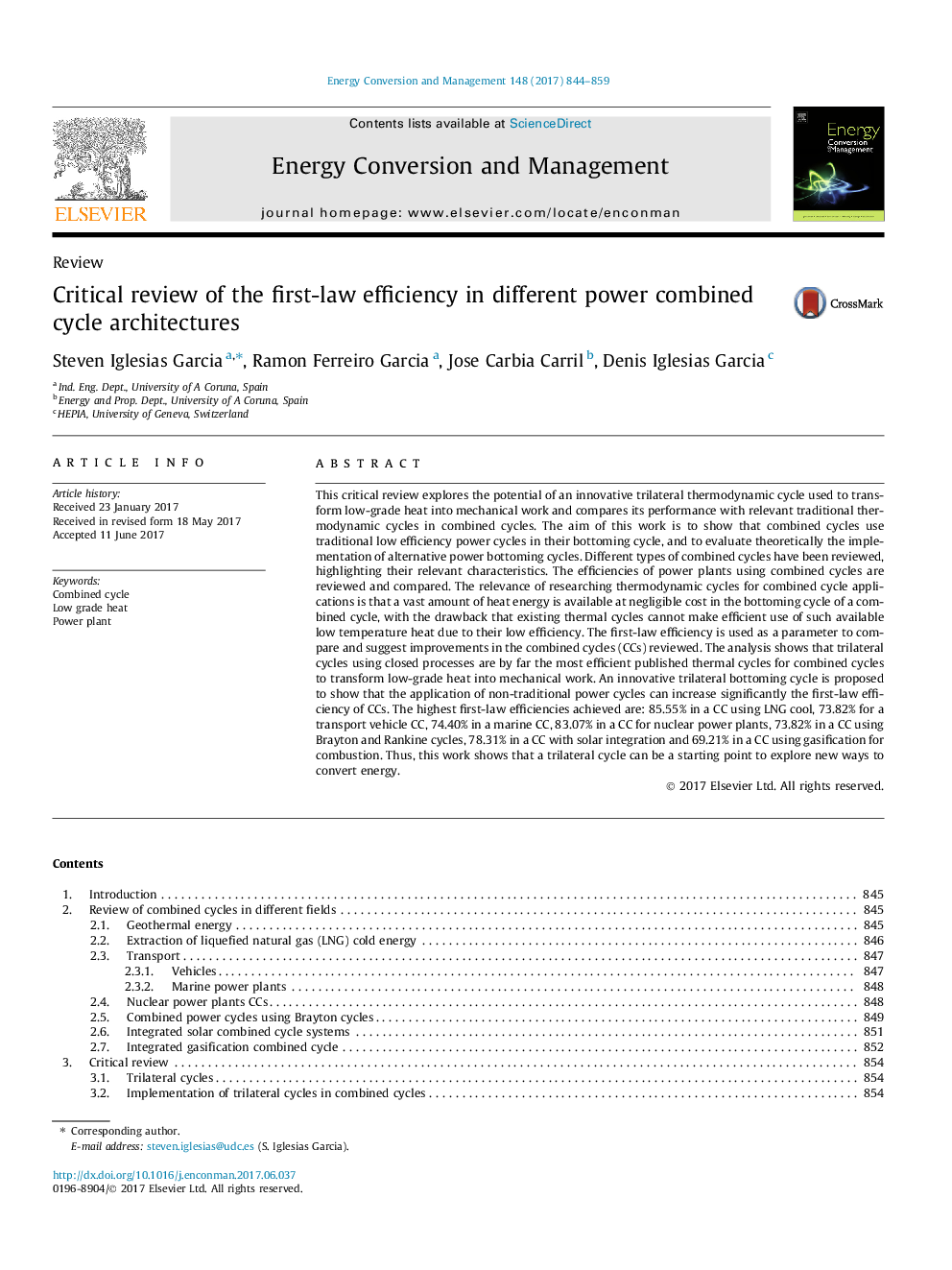| Article ID | Journal | Published Year | Pages | File Type |
|---|---|---|---|---|
| 5012544 | Energy Conversion and Management | 2017 | 16 Pages |
Abstract
This critical review explores the potential of an innovative trilateral thermodynamic cycle used to transform low-grade heat into mechanical work and compares its performance with relevant traditional thermodynamic cycles in combined cycles. The aim of this work is to show that combined cycles use traditional low efficiency power cycles in their bottoming cycle, and to evaluate theoretically the implementation of alternative power bottoming cycles. Different types of combined cycles have been reviewed, highlighting their relevant characteristics. The efficiencies of power plants using combined cycles are reviewed and compared. The relevance of researching thermodynamic cycles for combined cycle applications is that a vast amount of heat energy is available at negligible cost in the bottoming cycle of a combined cycle, with the drawback that existing thermal cycles cannot make efficient use of such available low temperature heat due to their low efficiency. The first-law efficiency is used as a parameter to compare and suggest improvements in the combined cycles (CCs) reviewed. The analysis shows that trilateral cycles using closed processes are by far the most efficient published thermal cycles for combined cycles to transform low-grade heat into mechanical work. An innovative trilateral bottoming cycle is proposed to show that the application of non-traditional power cycles can increase significantly the first-law efficiency of CCs. The highest first-law efficiencies achieved are: 85.55% in a CC using LNG cool, 73.82% for a transport vehicle CC, 74.40% in a marine CC, 83.07% in a CC for nuclear power plants, 73.82% in a CC using Brayton and Rankine cycles, 78.31% in a CC with solar integration and 69.21% in a CC using gasification for combustion. Thus, this work shows that a trilateral cycle can be a starting point to explore new ways to convert energy.
Related Topics
Physical Sciences and Engineering
Energy
Energy (General)
Authors
Steven Iglesias Garcia, Ramon Ferreiro Garcia, Jose Carbia Carril, Denis Iglesias Garcia,
